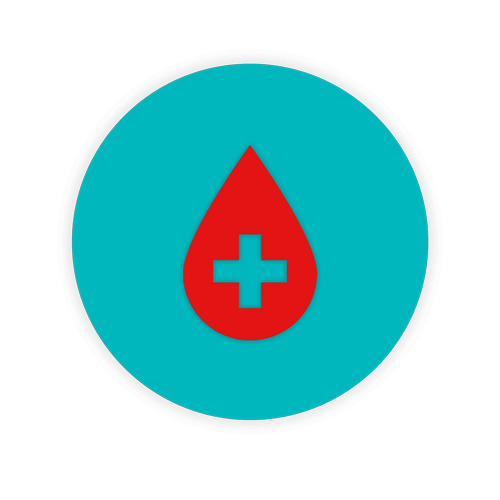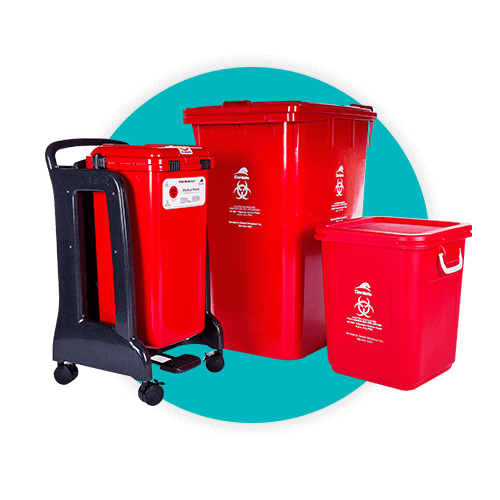Guide to New Jersey Medical Waste Regulations

The federal government’s Environmental Protection Agency (EPA) is one of several regulatory bodies that provide guidelines for medical waste generators. A medical waste generator is any type of facility or business that produces medical waste. This sounds quite simple, doesn’t it?
In addition to federal guidelines, every state throughout the United States also has its own regulations and laws regarding healthcare waste management and medical waste disposal. These laws aren’t contradictory to federal regulation, but rather, enhance it. That’s why it’s often said that state medical waste guidelines are often more stringent than those imposed by the federal government.
Which do you follow? Both. The same is applicable to New Jersey medical waste regulations.
Getting started with New Jersey’s medical waste regulations
Before diving into New Jersey’s medical waste regulations, it’s important for medical waste generators of any size or any volume to understand the definitions provided by the state in regard to different types of medical waste, such as regulated medical waste, infectious waste, pharmaceutical waste, biohazard waste, and so forth. To be double-safe, be aware of those terms as defined by the Resource Conservation and Recovery Act (legislation) of the EPA (a regulatory body), as well as definitions provided by your state’s administrative codes.
In New Jersey, governing laws and regulations for regulated medical waste are found under the New Jersey Administrative Code (NJAC) 7:26-3A.1 through 7:26-3A.49.
There’s more. There’s always more. Daniels Health is more than aware that guidelines for different waste streams can be found in different locations within government agencies, depending upon the department that handles it. In the state of New Jersey, a number of information resources are available. For example, you have:
- State regulated medical waste (RMW) information: Guidance Document for Regulated Medical Waste – Updated July 2016
- State rules: New Jersey environmental rules (per the Department of Environmental Protection)
- Federal/EPA information: medical waste
- New Jersey Administrative Codes (N.J.A.C.) Division of Solid and Hazardous Waste Rules, is also a valuable resource for any medical waste generator in the state.
It’s not enough to just be aware of these regulations. You need to read them, understand them, and follow them. It’s not enough to just know where they are and where to find them. It means reading through dozens, if not hundreds of pages of regulations to ensure that you and your healthcare facility are compliant when it comes to healthcare waste management, medical waste disposal, and compliant healthcare waste segregation.
For example, New Jersey state guidelines [7:26G (Hazardous Waste)] covers hazardous waste, hazardous waste facilities, and hazardous waste transport (including rail carriers). These guidelines pertain to the registration, operation, closure and post-closure maintenance of hazardous waste facilities. New Jersey’s Waste Management Program is responsible for such factors.
More about Guidelines
New Jersey guidelines, definitions, and regulations are very specific and provide adequate resources for understanding those guidelines and the difference between handling, labeling, storage and disposal of medical waste streams. For example, definitions found in government documents are very clear about defining the difference between certain types of medical waste and aspect of general waste management.
For example, in New Jersey, “biologicals” means preparations made from living organisms and their products, including vaccines, cultures, etc., intended for use in diagnosing, immunizing or treating humans or animals or in research pertaining thereto.
“Blood products” means any product derived from human blood, including but not limited to blood plasma, platelets, red or white blood corpuscles, and other derived licensed products such as interferon, etc.
This is an important one: “Destroyed regulated medical waste” means regulated medical waste that is no longer generally recognizable as regulated medical waste because all components of the waste have been ruined, torn apart, or mutilated to produce unrecognizable and unusable pieces smaller than three quarters of an inch, except that all sharps must be smaller than ½ inch….
In the state of New Jersey, biohazard waste regulations are under the purview of the New Jersey Department of Environmental Protection, Solid and Hazardous Waste Management. In some states, it can be difficult, if not time-consuming and frustrating, to find specific information regarding certain topics when it comes to healthcare waste management. Fortunately, New Jersey is not one of those.
New Jersey puts out a regulated medical waste generator fact sheet, designed to aid healthcare facilities and medical waste generators in safe tracking, on-site control, collection, labeling, and disposal of medical waste through special tracking forms. The form is recommended reading for all medical waste generators in the Garden State. This document specifically defines waste classes and descriptions of a variety of medical waste stream identification and handling:
- Cultures and stocks
- Pathological waste
- Human blood and blood products
- Sharps
- Animal waste
- Isolation waste
- Unused sharps
The document also carefully defines what is meant by a medical waste generator. Medical waste regulations in New Jersey require that all medical waste generators, handlers, transporters, and destination facilities track their regulated medical waste, no matter how small the amount generated. Medical waste generator fees are determined by volume of waste from those who generate less than 50 pounds a year to those that generate over 10,000 pounds a year.
Did you know that in the state of New Jersey, every generator, transporter, intermediate handler, collection facility, transfer station, and destination facility is supposed to register with the Department of Environmental Protection? This rule is found under solid waste regulations of NJAC 7:26, Subchapter 3A. – Regulated Medical Wastes. State guidelines also stipulate that all medical waste generators are supposed to register with the New Jersey Department of Environmental Protection (DEP) as a medical waste generator and pay annual fees in accordance to their regulations.
Are you aware that based on the regulations provided by the DEP that regulated medical waste “shall not remain at a commercial collection facility for more than 14 consecutive calendar days, which shall include weekends and holidays. A commercial collection facility at which waste is staged or stored for more than 14 calendar days shall be deemed to be an illegal solid waste transfer station, and shall be subject to all penalties authorized pursuant to applicable statutes and rules.”
Segregation requirements are found under NJAC 7:26-3A.10(b) and state that such waste must be segregated into:
- Sharps (Classes 4 and 7, meaning used and unused, respectively) including sharps containing residual fluid
- Fluids (quantities greater than 20 cm³)
- Other regulated medical waste
The small print is often buried in the middle of documentation – but it’s important to get to it. States adhering to the cradle-to-grave approach understand that it is the responsibility of the medical waste generator to know where their “trash” ends up. Fines and penalties in excess of tens of thousands of dollars are applicable in such cases of non-compliance.
Daniels Health helps you maintain compliance
Daniels Health provides economical, and efficient long-term solutions, guidance, and education to healthcare waste management in all areas of medical practice. No matter what size medical waste generator you are, you need to follow the rules of your state as well as that of the federal government.
For additional information or guidance in regard to medical waste segregation, medical waste disposal, or healthcare waste management methods that ensure compliance and save money, give us a call today.
Let's Talk!
Your time is valuable, and we don’t want to play hard to get. You can either phone us directly on the details listed on our contact page, or feel free to fill out this short form and one of our team members will get back to you as quickly as possible.
